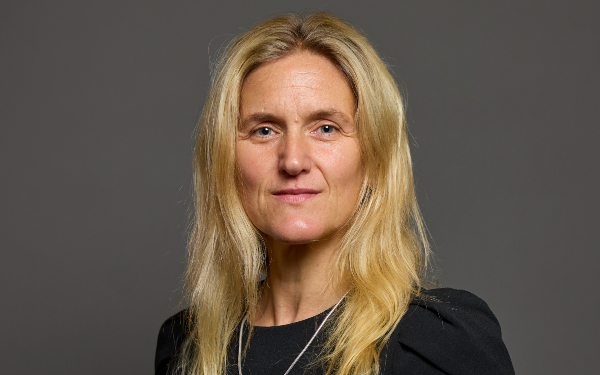
Social workers would sit on three-person panels set up to review adults’ requests for assisted dying under a proposed amendment to the bill to legalise the practice.
Labour MP Kim Leadbeater, sponsor of the Terminally Ill Adults (End of Life) Bill, has proposed that the panels – which would also comprise a psychiatrist and a senior lawyer – should consider requests for an assisted death that had been already signed off by two doctors.
Role of panels including social workers
The panels’ role would be assess whether the statutory requirements for an assisted death had been met, including that the person:
- has an inevitably progressive illness and is expected not to live beyond a further six months;
- has capacity to make the decision to end their life;
- has a clear, settled and informed wish to end their own life;
- made the initial declaration that they wanted to end their life voluntarily and was not coerced or pressured into making it.
The panels would have to take evidence from at least one of the two doctors and may also hear from the person themselves or any other person.
Replacing court role
Under the bill as currently stands, this role would be carried out by the High Court. However, concerns have been raised about the impact this function would have on court capacity, at a time when the judicial system is already under significant pressure.
Under Leadbeater’s proposal, the social worker member would need to be a registrant on either Social Work England’s or Social Care Wales’s register.
The panels would be appointed by a Voluntary Assisted Dying Commissioner, a new role appointed by the prime minister that would be held by a senior judge. This would be provided for by another of Leadbeater’s proposed amendments to her bill.
The amendments will be discussed by the committee scrutinising the bill after Parliament returns from its current recess next week.
Argument over level of safeguards
In a committee debate last week, bill opponent Danny Kruger raised concerns that replacing the High Court with a panel would weaken provisions in the bill protecting people from being coerced into ending their lives.
In response, Leadbeater cited the evidence of the Association of Palliative Care Social Workers (APCSW) to the committee in arguing that the panels would consist of practitioners with expertise in tackling coercion.
Though neutral on the question of assisted dying, the APCSW and the British Association of Social Workers (BASW) welcomed Leadbeater’s plan.
Social workers ‘uniquely qualified’ for role
The APCSW said: “The inclusion of social workers as core members of these panels shows that Kim Leadbeater and her colleagues have taken on board our arguments that social workers are uniquely qualified and equipped to undertake the complex and sensitive tasks of assessing mental capacity and safeguarding individuals who may be subject to any form of undue influence or coercion.”
It added: “The choices that people make as they approach the end of their lives are strongly influenced by their relationships with others and by the practical circumstances of their lives. This holistic perspective is our native ground as social workers.”
BASW issued a similar message, saying: “Individuals considering assisted dying, and their families, need holistic advice and support. The multi-disciplinary panel also potentially provides the framework to resolve issues of mental capacity and adult safeguarding, both issues which sit with social workers.”
Panels ‘would need to be backed by resource and training’
However, it added that the panels would require sufficient resource to ensure they were adequately staffed, while practitioners serving on them would need appropriate training and supervision to fulfil their roles.
There is a majority in favour of assisted dying on the committee, suggesting that the amendments will be agreed.
The bill will then return to the House of Commons for further debate and a final vote. Though MPs backed the bill in principle previously, the changes proposed by Leadbeater may lead to a weakening of support.
Celebrate those who’ve inspired you

Photo by Daniel Laflor/peopleimages.com/ AdobeStock
Do you have a colleague, mentor, or social work figure you can’t help but gush about?
Our My Brilliant Colleague series invites you to celebrate anyone within social work who has inspired you – whether current or former colleagues, managers, students, lecturers, mentors or prominent past or present sector figures whom you have admired from afar.
Nominate your colleague or social work inspiration by filling in our nominations form with a few paragraphs (100-250 words) explaining how and why the person has inspired you.
*Please note that, despite the need to provide your name and role, you or the nominee can be anonymous in the published entry*
If you have any questions, email our community journalist, Anastasia Koutsounia, at anastasia.koutsounia@markallengroup.com







 Bournemouth, Christchurch and Poole
Bournemouth, Christchurch and Poole  Hampshire County Council
Hampshire County Council  Oxfordshire County Council
Oxfordshire County Council  South Gloucestershire Council
South Gloucestershire Council  Wokingham Borough Council
Wokingham Borough Council  Webinar: building a practice framework with the influence of practitioner voice
Webinar: building a practice framework with the influence of practitioner voice  ‘They don’t have to retell their story’: building long-lasting relationships with children and young people
‘They don’t have to retell their story’: building long-lasting relationships with children and young people  Podcast: returning to social work after becoming a first-time parent
Podcast: returning to social work after becoming a first-time parent  How managers are inspiring social workers to progress in their careers
How managers are inspiring social workers to progress in their careers  Workforce Insights – showcasing a selection of the sector’s top recruiters
Workforce Insights – showcasing a selection of the sector’s top recruiters 

 Facebook
Facebook X
X LinkedIn
LinkedIn Instagram
Instagram
Given my experience of MHRT processes I have no real confidence that this proposal would safeguard let alone determine that the decisions presented to it by doctors were sound and complied with best interest criteria. How is coercion to be determined or discounted if the panel “may” meet with the person concerned? How is what will inevitably quickly become a paper review consistent with an “holistic approach”? How will capacity be safely and indeed competently be determined by a panel that hasn’t met the person but is ‘persuaded’ of capacity and lack of coercion by medical opinion alone? Bureaucratisation of death may appeal to the likes BASW well used to self delusion about how best to practice social work but isn’t welcomed by me.
In my experience judges(retirement notwithstanding) take social worker advice as suggestions rather than recommendations. The social work role on this panel is at risk of becoming a fig leaf for a rather abstract decision making process. If the social worker and the judges views are divergent who would have the whip hand?
If the social worker on the panel doesn’t get to meet the person, they aren’t doing social work and I’ve no idea what they’d be practicing or making any assurances of on the panel.
Social workers would do themselves a massive favour by following the Commons Committee scrutiny of this bill. They’d be surprised at what drives the bill and might even get to understand that BASW and APCSW neither represents the nor the public.
I am a practising Catholic and do not agree with this bill. where do I stand if refusing to take part in this panel. what are my rights under The Equality Act 2010
I second your concerns.
I do not agree with this bill; it goes against my personal, spiritual and religious beliefs and I could not in good conscience have any part of this.
I would vociferously refuse to take part in this on every level.
I feel that the inclusion of Social Workers could only be a positive thing. I take on board the concerns of others and respect the views of those who would prefer not to participate. That said, as a long time qualified Social Worker, I can certainly look back at my younger self and confidently say I would not have felt prepared for such a role when I was younger.
I will watch developments with interest.
Lots of us have political, religious, cultural and ethical dilemmas in our work. We don’t have the luxury of pick and choose social work. No social worker will be compelled to sit on a Tribunal if this becomes law. There are many many reasons to oppose this bill but forced Tribunal membership is a red herring. Personally I think doing what Sandy suggest is the best way to understand what is being proposed, the dangers on informed consent inherent in it and the various other I’ll thought through clauses.